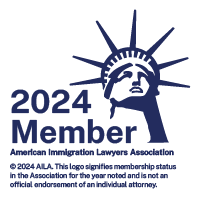The section of the law that governs this waiver can be found in the INA Section 212(a)(9)(B)(v) and the regulatory provisions can be found in 8 CFR Section 212.7(e).
It is important to keep in mind that the statute did not change regarding this waiver. What the regulations did was to add a mechanism whereby certain eligible individuals can file this waiver here in the U.S., have it adjudicated prior to going to their overseas consulate to apply for an immigrant visa.
To be eligible, one must first and foremost be an “immediate relative” beneficiary of an approved petition. This means that only spouses of U.S.citizens, children of U.S. citizens under 21, and parents of U.S. citizens whose petitioning child is at least 21 years of age are covered. Therefore relatives of Lawful Permanent Residents cannot use this process.
The statute requires that extreme hardship must be shown to two categories of relatives: Spouse or Parent. Thus the parent of a U.S. Citizen who may have an approved immediate relative petition would not be eligible for this waiver if their only relative is their son/daughter who petitioned for them, or other U.S. citizen children for that matter.
However such parent of a U.S. Citizen in the above scenario may be eligible for the I-601A if they have a spouse or parent themselves who is a U.S. citizen even if that spouse or parent did not file the approved immediate relative petition. Of course extreme hardship to that relative must still be established. Additionally all other eligibility criteria should also be satisfied.
The above information is general in nature and does not constitute legal advice for a particular situation.


